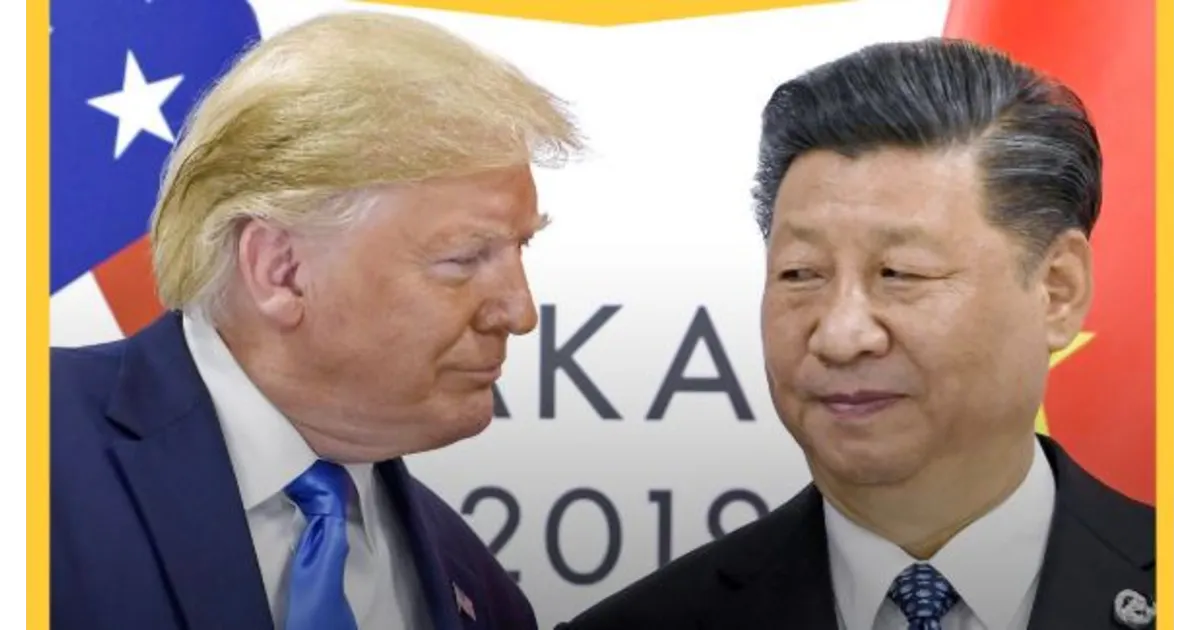
Escalating Economic Tensions
In a bold move that reignited long-standing economic tensions between the world’s two largest economies, U.S. President Donald Trump announced a 100% tariff on Chinese imports on Friday. He also hinted at scrapping a planned summit with Chinese President Xi Jinping, citing aggressive trade behavior by Beijing.
Retaliation Over Rare Earth Export Curbs
The new tariffs, along with U.S. export restrictions on critical software, are set to take effect on November 1. According to Trump, these measures respond directly to China’s recent export controls on rare earth minerals, which he described as an “extraordinarily aggressive” tactic.
“It is impossible to believe that China would have taken such an action, but they have, and the rest is history,” Trump posted on Truth Social.
Market Shock and Investor Response
Following the announcement, global markets responded negatively. The Nasdaq dropped by 3.6%, while the S&P 500 fell 2.7%, reflecting fears of renewed economic instability amid the resurging trade conflict.
Existing Tariffs and Ongoing Disputes
Currently, Chinese products are subject to 30% U.S. tariffs—measures that Trump initially introduced in response to alleged unfair trade practices and China’s role in the fentanyl crisis. China’s retaliatory tariffs remain at 10%.
The U.S. president’s fresh statement came just hours after an earlier, strongly-worded social media post. Trump accused Beijing of sending letters globally to inform nations of its planned export restrictions on rare earth elements.
Rare Earths: Strategic Minerals at Stake
Rare earth elements are vital in the production of modern technology, including smartphones, electric vehicles, renewable energy systems, and military equipment. With China controlling the majority of global production, Trump criticized the nation for holding the world “captive” over essential resources.
“There is no way that China should be allowed to hold the World ‘captive,'” he wrote, calling China’s actions “very hostile.”
Summit with Xi in Doubt
The recent developments have cast doubt on the much-anticipated Asia-Pacific Economic Cooperation (APEC) summit scheduled for later this month in South Korea. It was expected to mark the first direct meeting between Trump and Xi Jinping since Trump resumed the presidency in January.
“I was to meet President Xi in two weeks, at APEC, in South Korea, but now there seems to be no reason to do so,” Trump declared online.
Beijing has not issued an official response to the new tariffs or Trump’s remarks.
Rising Hostilities and Global Concerns
Trump expressed bewilderment over China’s sudden actions, stating, “Some very strange things are happening in China!” He claimed that several foreign nations had contacted Washington, expressing concern over China’s abrupt trade aggression.
He further accused the Chinese government of “lying in wait,” despite what he described as six months of improved relations, particularly in negotiations over TikTok’s U.S. operations, now governed by U.S. law.
A Fragile Truce at Risk
This latest flare-up arrives just weeks after Trump emphasized the importance of engaging with Xi at APEC. He had even expressed willingness to travel to China next year, signaling hopes of de-escalation. However, tensions from earlier in the year—marked by a tit-for-tat tariff war—continue to shadow bilateral relations.
The previous trade ceasefire between Washington and Beijing now appears increasingly fragile.
Agriculture, Shipping, and Tech Also in the Crossfire
Trump also pledged to confront Xi over soybean purchases, underscoring his efforts to support American farmers—a crucial voting base during his 2024 campaign. Meanwhile, China earlier announced new “special port fees” on U.S.-built and U.S.-operated ships, in retaliation for fees Washington imposed on China-linked vessels in April.
U.S. Pushback on Chinese Technology
In another parallel development, the Federal Communications Commission (FCC) reported that it had succeeded in removing millions of listings for banned Chinese products from online marketplaces.
“The Communist Party of China is engaged in a multi-prong effort to insert insecure devices into Americans’ homes and businesses,” warned FCC Commissioner Brendan Carr via X (formerly Twitter).






